Ever wondered what the must-read Engineering books are? Here is our take.
In this article, we have listed some of the best books for engineering students which will help you advance your engineering career.
This list helps researchers tucked away in their daily grind develop their next breakthrough idea.
For a layperson, this helps you become a well-read lifetime learner.
Let’s start!
Table of Contents
Best Engineering Books
- Chemical Engineering and Technology [Get the book]
- Mechanical Engineering For Makers [Get the book]
- Mechatronics [Get the book]
- Clean Code [Get the book]
- Introduction to Civil Engineering Systems [Get the book]
- Elon Musk [Get the book]
- Cracking the Coding Interview [Get the book]
- The Art of Doing Science and Engineering [Get the book]
- Design Patterns [Get the book]
- Artificial Intelligence Revolution [Get the book]
- Zen and the Art of Motorcycle Maintenance [Get the book]
- Engineering the ABC’s [Get the book]
- The Mythical Man-Month [Get the book]
- Normal Accidents [Get the book]
- 101 Things I Learned in Engineering School [Get the book]
- Basics of Precision Engineering [Get the book]
Chemical Engineering and Technology by Ian Goodwin
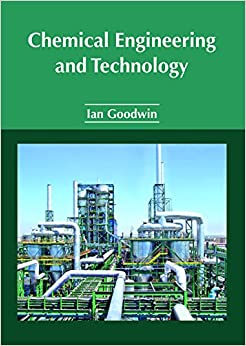
Intro-Why you should read it
The author-Ian Goodwin-has a wealth of industry experience, making this book a firm introduction to the fundamentals of chemical processing.
The book also contains advanced topics to equip students better to work on projects.
Summary-What this book is about
Chemical Engineering and Technology is a concise textbook that provides an overview of the main processes and products in the chemical industries.
Key Takeaways
- Chemical engineers apply their knowledge to solve problems in the world around us.
- Chemical engineers need to know how to design and operate industrial systems.
Mechanical Engineering For Makers: A Hands-on Guide to Designing and Making Physical Things by Brian Brunnell and Samer Najia
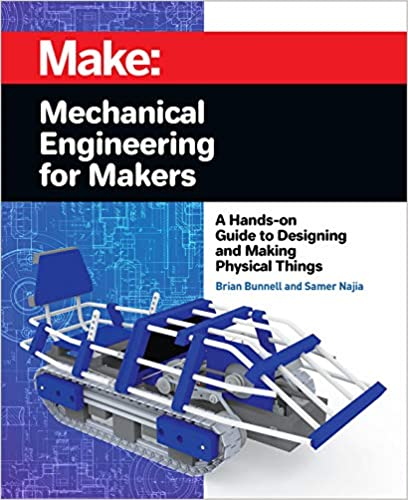
Intro-Why you should read it
This book summarizes makers’ basic tools and skills with easy-to-understand descriptions and colorful illustrations.
Summary-What this book is about Zen and the Art of Motorcycle Maintenance
This book is a hands-on guide to design, prototyping, and making physical things.
The authors introduce mechanical engineering using a simple, accurate, and replicable process that anybody can use to create working products.
Key Takeaways
- Understand the physics that affects how things move.
- Calculate forces and optimize designs for strength and stability.
Mechatronics: Electronic Control Systems in Mechanical & Electrical Engineering by William Bolton
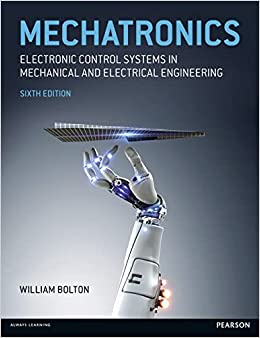
Intro-Why you should read it
This bestselling introductory textbook offers comprehensive coverage of the interdisciplinary subject of mechatronics.
Summary-What this book is about
This edition has new material on programmable logic controllers (PLCs), microcontrollers, electronics, and numerous worked-out practical examples.
The book covers the complex systems that enable engineers to control mechanical and electrical systems.
Key Takeaways
- Mechatronics engineers must be able to implement interdisciplinary solutions quickly and efficiently.
- Mechatronics is the study of how to use sensors and actuators to make machines more efficient and how to use computers to make machines smarter.
Clean Code: A Handbook of Agile Software Craftsmanship by Robert Martin
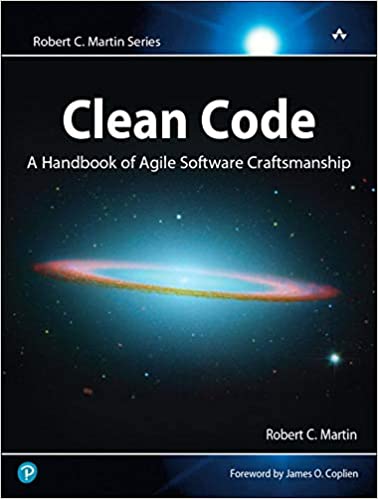
Intro-Why you should read it
Clean code is concise and easily readable, making it one of the best engineering books for students.
Summary-What this book is about
This handbook is full of practical techniques and real-world examples of clean Code and how to achieve it.
Clean Code discusses software design and clean code.
Key Takeaways
- We need a good attitude to perform better in software design.
- We should have sound communication skills to offer the best services.
Introduction to Civil Engineering Systems: A Systems Perspective to the Development of Civil Engineering Facilities by Samuel Labi

Intro-Why you should read it
Introduction to Civil Engineering Systems is an engineering textbook that teaches every undergraduate student the new and difficult concepts behind civil engineering systems.
Summary-What this book is about
The book has three main parts-the first two provide a detailed review of multiple aspects necessary to fully understand systems theory and fundamental engineering theories.
The third part discusses how these facets play a role in the role of government and its responsibility to civil engineering.
Key Takeaways
- This book is the perfect guide for learning how to conceptualize, design, manage, and improve systems that are made up of complex, interrelated components.
- The book includes illustrations and real-life examples to help you understand how to identify system objectives, perform a risk analysis, apply decision trees, and more.
Elon Musk: Tesla, SpaceX, and the Quest for a Fantastic Future by Ashlee Vance
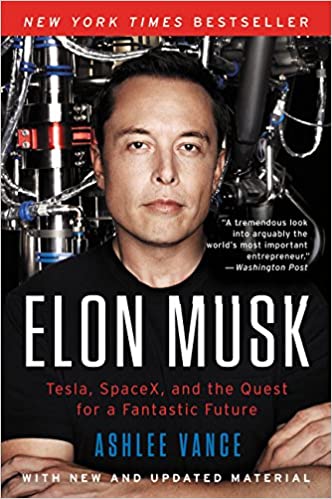
Intro-Why you should read it
The book explore Elon Musk’s journey to his improbable and unprecedented success.
Summary-What this book is about
Ashlee Vance captures the full spectacle and arc of the genius’ life and work, from his tumultuous upbringing in South Africa and flight to the United States to his dramatic technical innovations and entrepreneurial pursuits.
Key Takeaways
- Elon Musk is the CEO of both Tesla Motors and SpaceX and a pioneer of our time.
- He is also the real-life inspiration for Iron Man’s Tony Stark and one of Time’s most influential people in the world.
Cracking the Coding Interview by Gayle McDowell
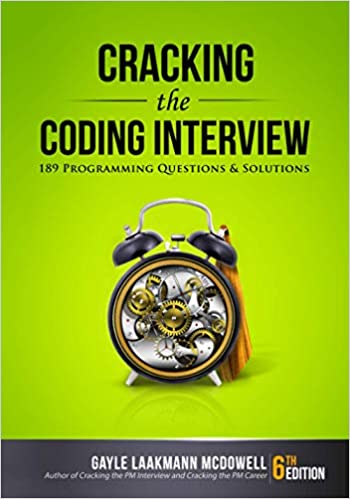
Intro-Why you should read it
Cracking the Coding Interview offers the most in-depth training on what software developers need to know to land a job as a developer.
Summary-What this book is about
The book is full of information about the job market and what it’s like to go through an interview process.
Key Takeaways
- This book offers readers an in-depth, data-driven look at which coding interview questions you will often get, what they’re asking, and how to prepare for them.
The Art of Doing Science and Engineering by Richard Hamming
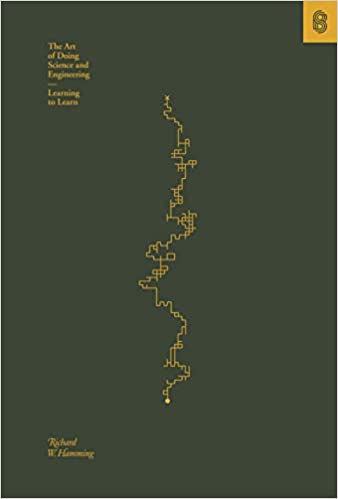
Intro-Why you should read it
The Art of Doing Science and Engineering is an engaging book on how to be creative, think critically, and organize knowledge.
Summary-What this book is about
This classic text has a fresh new look, revised and updated by the author to provide a deeper understanding of fundamental principles in science and engineering.
Key Takeaways
- It’s important to have good intuitions about what you’re working on.
- The purpose of science is to be useful, and the purpose of engineering is to make things that work.
Design Patterns: Elements of Reusable Object-Oriented Software by Erich Gamma
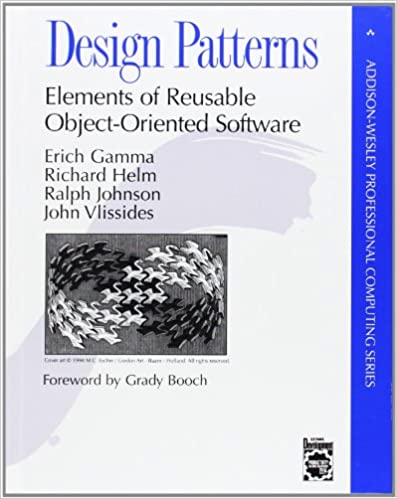
Intro-Why you should read it
Design Patterns: Elements of Reusable Object-Oriented Software by Erich Gamma is one of the best books for anyone wishing to learn more about software development, design, and more.
Summary-What this book is about
Erich Gamma’s book will teach you how to write code that meets your needs, be it an operating system, a user interface, or the best set of classes for designing an e-commerce application.
This book sometimes contains some complex subject matter. However, you will still find much value in what’s inside.
Key Takeaways
- Program using patterns instead of specific coding languages.
- Implement better designs for software objects.
Artificial Intelligence Revolution: How AI Will Change Our Society, Economy, and Culture by Robin Li
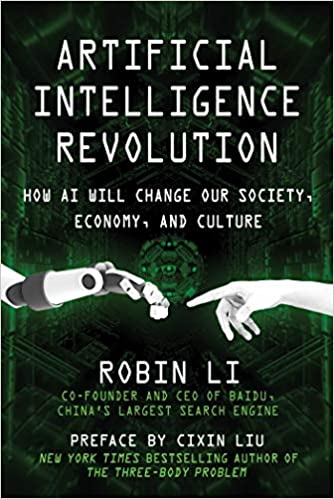
Intro-Why you should read it
This book examines how AI will impact just about every aspect of our lives, including education, the job market, transportation, etc.
Summary-What this book is about
What is computer-assisted medicine? How are human-like robots going to change the way new homes are built? What will happen to our workforce?
Robin Li explores where we are today and where we will be after the AI revolution.
Key Takeaways
- Artificial intelligence can be used to help make our lives easier by automating mundane tasks that we do every day, such as driving or cooking meals.
- There are many benefits to using artificial intelligence in our everyday lives as well as in business.
Zen and the Art of Motorcycle Maintenance by Robert Pirsig
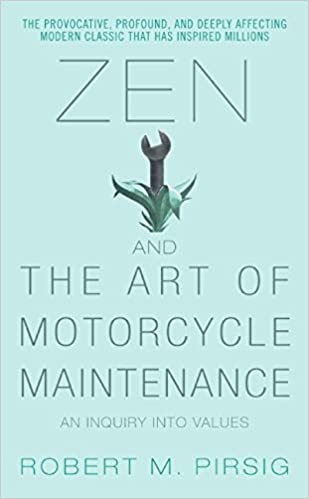
Intro-Why you should read it
Zen and the Art of Motorcycle Maintenance is a philosophical novel by Robert Pirsig, first published in 1974. The book has been described as “a work of philosophical fiction” and explores the concept of “quality” and the relationship between the rational and the metaphysical.
Summary-What this book is about
It is a story of a father-son motorcycle trip, the father is struggling with his past mental illness and the son is dealing with the present. The book is considered a classic in philosophy and has been praised for its ability to make complex ideas accessible to a general audience.
The book has been called a “modern classic”. It is highly recommended as an excellent read for anyone interested in exploring the relationship between rationality and metaphysics and the nature of quality and its role in our lives.
Engineering the ABC’s: How Engineers Shape Our World by Patty Novak

Intro-Why you should read it
Engineering the ABCs: How Engineers Shape Our World by Patty Novak is a children’s book covering the alphabet’s letters.
The bright and colorful illustrations make them great for readers who love this subject and want to learn more.
Summary-What this book is about
This book uses carefully depicted images to teach students about both the fun and important roles modern engineers play in our world.
Key Takeaways
- Engineers build things and make them work.
- Engineers have the power to make our world a better place.
The Mythical Man-Month (and Other Essays on Software Engineering) by Frederick Brooks
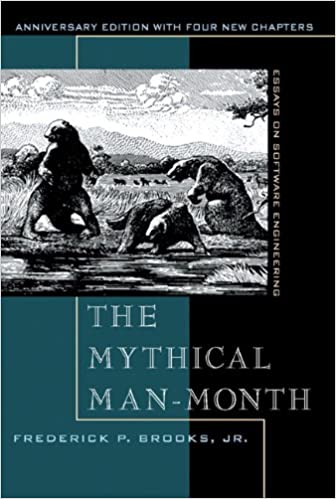
Intro-Why you should read it
This book boasts facts, figures, and practical advice for those who develop software.
Summary-What this book is about
The book explores the statistics about how many bugs are found in software using anecdotes.
The author also includes warnings about the ever-present conflict that causes development to take up more time than predicted.
Key Takeaways
- Manage your time and tasks so that you do not have many deadlines.
Normal Accidents: Living with High-Risk Technologies by Charles Perrow
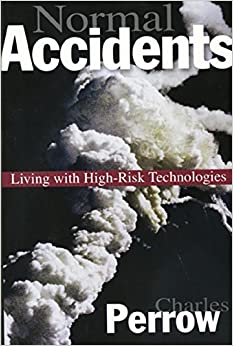
Intro-Why you should read it
This book looks at high-risk technologies that are everywhere today- nuclear reactors, chemical plants, the electrical grid.
Summary-What this book is about
Charles Perrow’s Normal Accidents: Living with High-Risk Technologies explores how technology surprisingly tends to fail in unexpected, sometimes catastrophic ways.
Key Takeaways
- Accidents will happen and there’s no way around them; thus, we must learn to accept their inevitability while still striving toward better safety practices where possible.
101 Things I Learned in Engineering School by John Kuprens
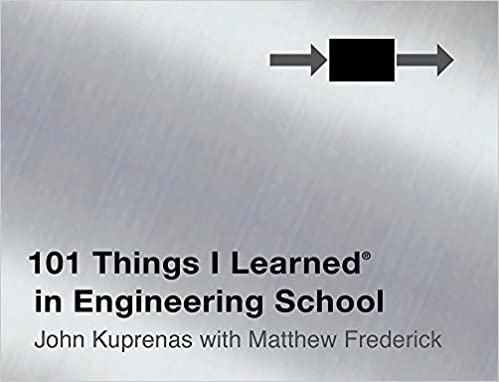
Intro-Why you should read it
John Kuprens, a registered Engineer and Project Management professional, shares a lot of valuable, helpful, and encouraging information with the reader.
Summary-What this book is about
This book offers an entertaining and unique look at engineering, with a focus on civil/material principles that any electrical engineer could appreciate. It provides fresh perspective to the fundamentals of engineering. It covers the broad spectrum of engineering education, making you laugh along the way.
Key Takeaways
- Engineering is about making choices and tradeoffs between competing objectives.
- Engineering is more than just technical knowledge—it also requires communication skills.
Basics of Precision Engineering by Richard Leach and Stuart Smith

Intro-Why you should read it
If you are an engineering student looking to advance your knowledge and understanding of engineering precision, this book is for you.
Summary-What this book is about
This book is a great overview of precision engineering, with many illustrations and practical applications.
The text carefully explains the basics of distortion, strength, deflection, stress and strain, dimensional analysis, tolerancing, and fits.
Key Takeaways
- Precision engineering is a branch of manufacturing science concerned with machining processes used in manufacturing high-precision parts.
- The engineering industry requires advanced knowledge of materials, processes, tolerances, and surface finish requirements.
Conclusion
Books offer in-depth explanations and step-by-step instructions that you cannot get from a random blog post or video.
The books we listed above will teach you everything there is to know about the engineering industry.
You’ll learn engineering principles in space science, project management, aerospace engineering, and design.
We hope this list inspires you to check out some of these engineering textbooks.



The descriptions of these books are wrong in so many ways it is hard to know where to begin. Zen and the Art of Motorcycle Maintenance is not a “hands-on guide to design, prototyping, and making physical things.” It is the first-person story of a man who underwent electroshock therapy, and who is trying to rediscover himself while exploring the metaphysics of quality. 101 Things I Learned in Engineering School was not written by an MIT Electrical engineer, and it does not contain “anecdotes and stories from John’s life during his early days as an engineering student.” We appreciate the mention of one of our books, but are puzzled, to say the least. that such blatant misinformation appears in an article by the Chief Editor of a science-centric website.
Hi Matthew! Thank you for the comment! We are delighted to have you here.
I acknowledge that “Zen and the Art of Motorcycle Maintenance” is generally considered a philosophical exploration of the concept of “quality” and the relationship between the individual and society. As for the 101 Things I Learned in Engineering School, we have clarified that it is written by a Registered Engineer and Project Management professional.